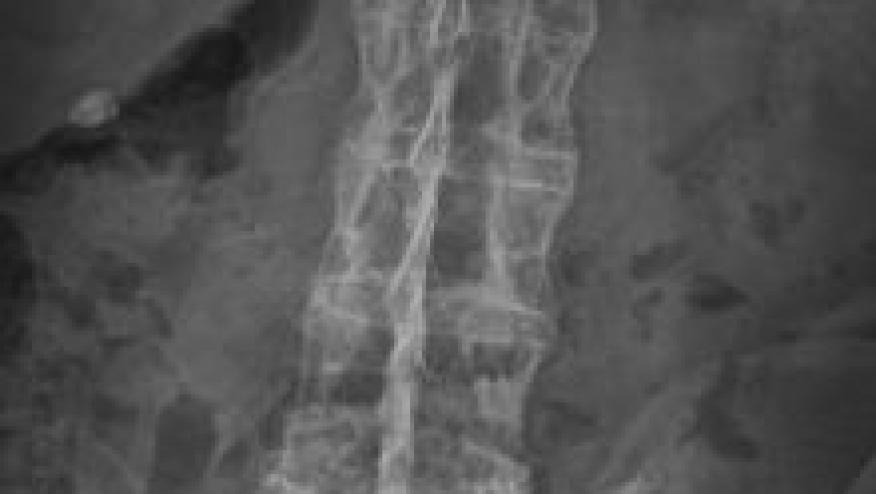Secukinumab in Psoriatic Arthritis Patients with Axial Disease Save

Like any other systemic rheumatic disease, treating psoriatic arthritis (PsA) remains a challenge. Axial involvement is common and like AS, can have profound effects on the functional capacity and quality of life of those affected. Results of the MAXIMISE trial show that Secukinumab provided clinical improvement and reduction in inflammatory MRI lesions in patients with psoriatic arthritis and axial disease through week 52.
This study was a large, phase III, multicentre trial involving 498 psoriatic arthritis patients fulfilling the CASPAR criteria who had active spinal disease (spinal pain VAS score ≥40/100 and BASDAI-score ≥4) and inadequate response to > 2 NSAIDs. Patients were randomized to either subcutaneous secukinumab (SEC) 300mg, 150mg or placebo weekly for 4 weeks then every 4 weeks thereafter. After week 12, patients on placebo were re-randomized to SEC 300mg or 150mg. The primary endpoint was an ASAS20 response with SEC 300mg at week 12. Additional exploratory assessments were made at week 52 which included ASAS20/40, BASDAI50, spinal pain (VAS) and improvement in Berlin MRI score for the spine and SI joints.
At week 12, there was a significant (P< 0.0001) improvement in ASAS20/40 responses with SEC 300mg (62.9%/43.6%) and SEC 150mg (66.3%/39.5%) compared to placebo (31.2%/12.2%). In addition, patients who met the following criteria for inflammatory back pain at baseline achieved an ASAS20 response at week 12: ASAS (64.6%), Calin et. al (69.1%) and Berlin (33.6%).
Investigators have also reported further improvement with SEC 300/150mg in ASAS20/40 response rates as well as sustained reductions in the Berlin MRI scores for the entire spine and SI joints from baseline through 52 weeks.
This trial showed that Secukinumab is effective for axial disease in PsA with significant rapid and sustained improvement in clinical and imaging outcomes. It’s exciting to know this seeing how there is still limited evidence on the use of biologics in a randomized controlled setting for psoriatic arthritis patients with axial manifestations. How will these results impact the current management of axial PsA? For one thing, it adds weight to further understanding this distinct phenotype of axSpa. I expect that more studies similar to this will start to come out in the future. The MAXIMISE trial (abstract #0505) results was presented during the abstract session on spondyloarthritis treatment on Friday, November 6, 2020 at 3:00PM EST.










If you are a health practitioner, you may Login/Register to comment.
Due to the nature of these comment forums, only health practitioners are allowed to comment at this time.